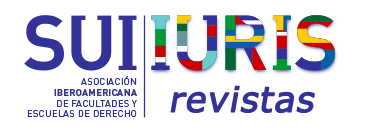Freedom of expression and hate speech
A study of Robert Post’s and Owen Fiss’s conceptions of freedom of speech
Abstract
The main rulings of the Argentine Supreme Court on the issue of freedom of speech have resulted in a very limited conception of this right, almost exclusively focused on a specific aspect, which is that of civil or criminal liability for the dissemination of false information or hurtful or offensive opinions regarding public officials or public figures. On the other hand, the Supreme Court has not imposed any limit to the repressive power of the State in the dissemination of ideas in public discourse.
In this context, the article analyzes the conception of freedom of speech of two of the leading experts of the American academy -Robert Post and Owen Fiss-, and its application in one of the most sensitive and controversial areas of this right: the dissemination of hate speech. The critical study of the opposing views of these two American professors aims to obtain certain tools necessary to analyze in greater depth the constitutional validity of the rules that -in Argentine law- punish the dissemination of certain ideas or opinions in the field of public discourse.
Downloads
Downloads
Published
Versions
- 2022-05-15 (2)
- 2014-12-01 (1)











